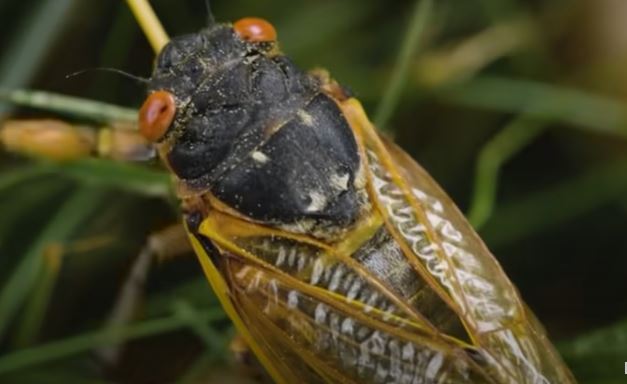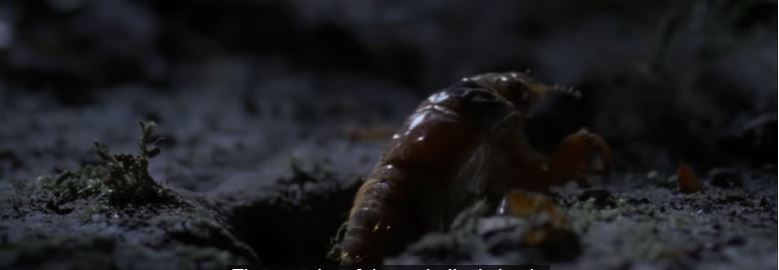
An excess of one trillion cicadas are en-route to the United States. This month, two broods of red-eyed winged insects are emerging from the soil. The Midwest and Southeast can anticipate an entire summer of high-pitched humming.
Cicada brood XIX emerges every thirteen years. Cicada brood XIII emerges every seventeen years. What you need to know about this uncommon occurrence.
Cicadas belong to the same family as bedbugs and odor bugs. They inhabit burrows that are seven to eight inches underground for over a decade before emerging when they reach maturity. Weeks prior to their anticipated emergence, cicadas construct surface tunnels. However, they remain in their burrows until the soil temperature reaches approximately 64°F
Cicadas are typical in that they have an exceptionally long-life span. Nonetheless, their lifespan is quite brief once they emerge from the soil. The length of periodic cicadas is around one inch. They are roughly twice that length in wingspan. Their large red eyes and orange wing veins help to identify them.
Three of the seven distinct species reappear every 17 years. Every thirteen years, the other four appear. The majority of cicadas arrive on schedule. But occasionally, they “count the years” incorrectly.

There will be cicadas in a number of states. Only two states—Indiana and Illinois—will likely get to see both broods. It’s possible that Wisconsin, Michigan, and Iowa will host Brood XIII. Mississippi, Missouri, Alabama, Georgia, Kentucky, Arkansas, Louisiana, North and South Carolina, Oklahoma, Tennessee, and Virginia are possible locations for Brood XIX.
It irritates a lot of people. However, cicadas pose little threat to people. The mating signal of the male cicada is an audible buzz. They don’t bite or sting.
Cicadas, according to the Environmental Protection Agency (EPA), can benefit neighboring plants and animals. For hawks and other birds, they make an excellent food source. Cicadas only eat the sap from trees and bushes, they won’t harm blooms or fruit.
Young trees can sustain injury when infested with cicadas as their eggs hatch in their branches. The Environmental Protection Agency advises clinging to trees with gauze or netting. The website Cicada Safari was developed at Mount St. Joseph University, located in Ohio. It recommends cheesecloth wrapped around the branches of a tree to ward off cicadas.